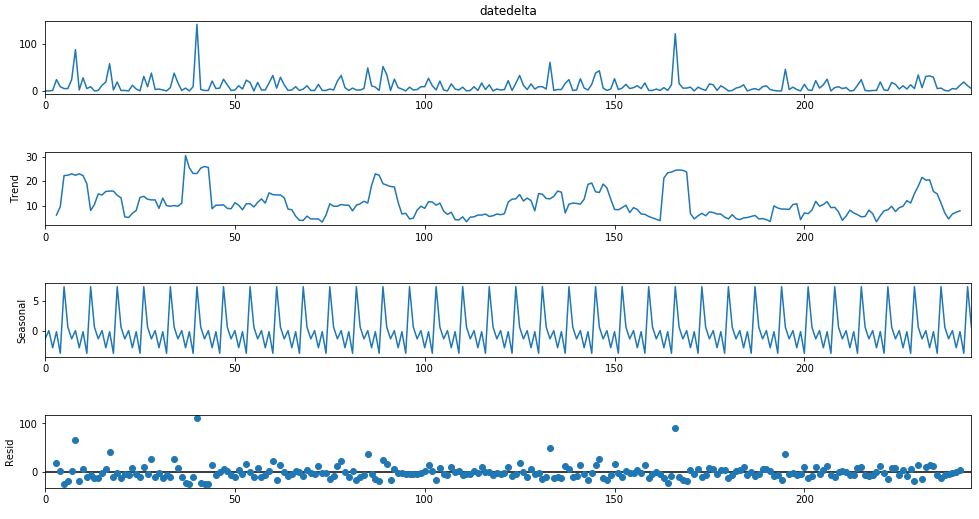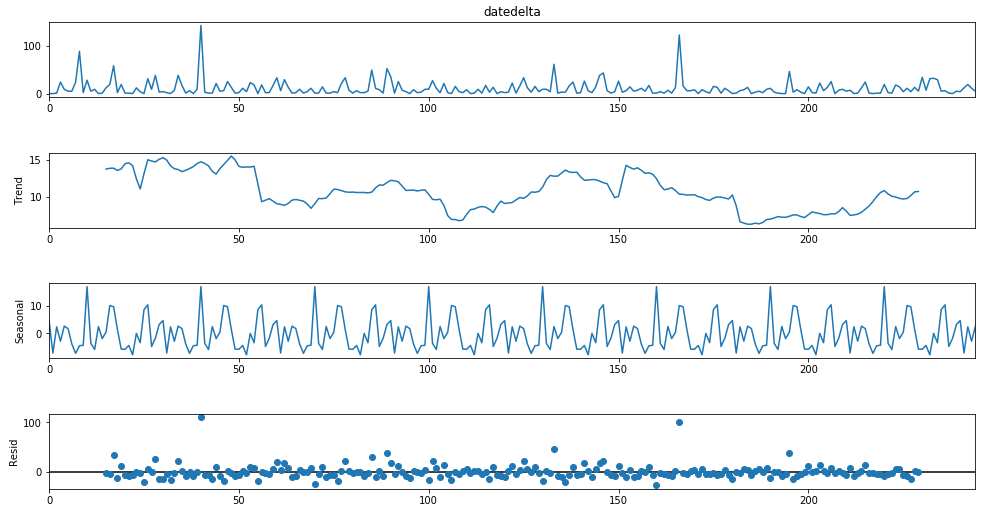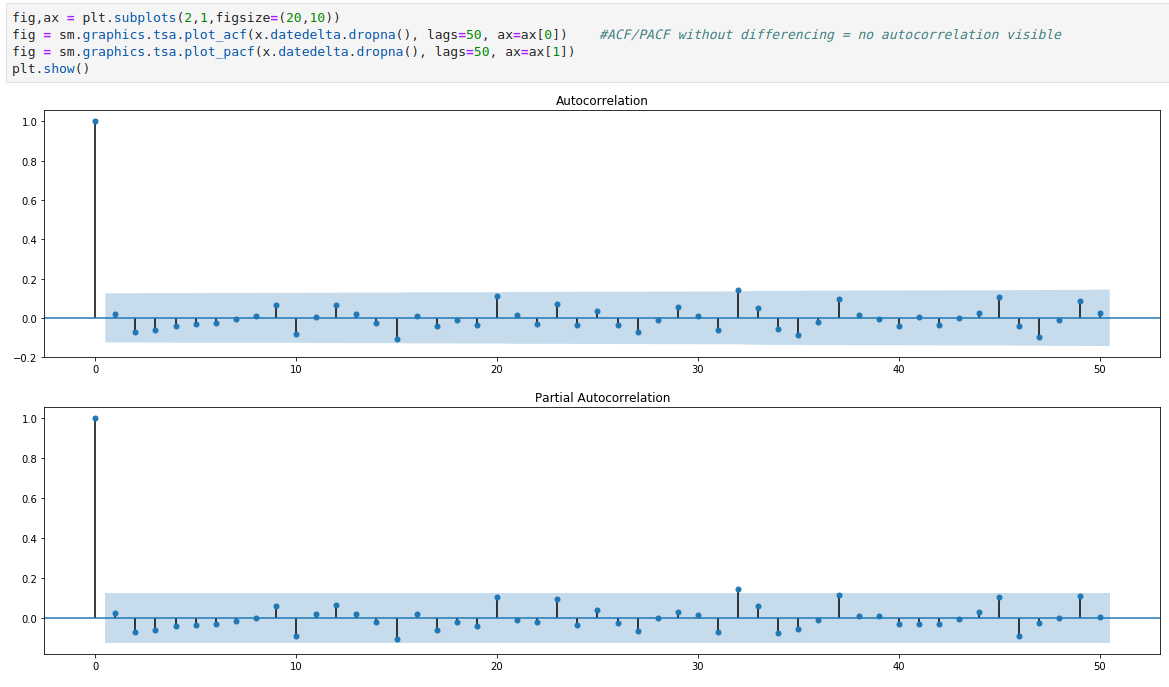My data has timestamps corresponding to the failure occurrences of a specific component in machinery. The timestamps are not uniformly distributed. My question is: 1) what methods can I use to (almost) accurately to forecast future occurrences (timestamps) of Failure? 2)What other features can I derive?
What I've tried so far:
Since the timestamp sequence is unevenly spaced I've derived a feature datediff= difference between sequential fault occurrences. Since it is now a univariate time-series I have tried classical time-series forecasting methods like ARIMA and SARIMA (hasn't worked out well)
I am posting the seasonal decompositions of the time-series freq=7(weekly)



